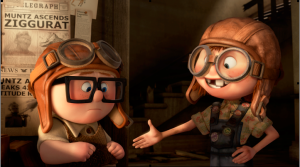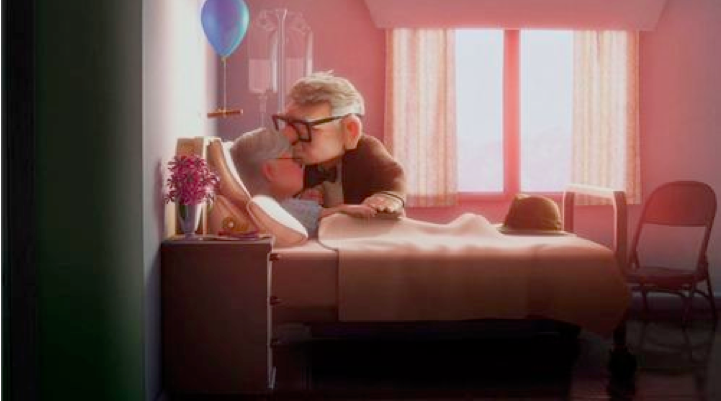 One of my favorite tv shows of late is Castle. What’s not to love? Nathan Fillion is awesome, fights crime, and is an author! He’s who I want to be when I grow up. One of the subplots, and it’s almost getting to the point to where it’s cliche, is the love relationship between Richard Castle and Kate Beckett. Everyone knew from day one that the sexy co-star would eventually end up with the strong protagonist. In fact, I’m sure that even those who have never seen the show know exactly what I’m talking about. The formula is as old as time, so why does it keep happening? Or, perhaps a better question, why is it still so exciting?
One of my favorite tv shows of late is Castle. What’s not to love? Nathan Fillion is awesome, fights crime, and is an author! He’s who I want to be when I grow up. One of the subplots, and it’s almost getting to the point to where it’s cliche, is the love relationship between Richard Castle and Kate Beckett. Everyone knew from day one that the sexy co-star would eventually end up with the strong protagonist. In fact, I’m sure that even those who have never seen the show know exactly what I’m talking about. The formula is as old as time, so why does it keep happening? Or, perhaps a better question, why is it still so exciting?
If you’ve been following the blog all month, you have seen many examples of how love sells. We’ve talked about why it sells, the science behind it, the deep emotional depths, and the physical side as well. And, like clockwork, it comes up every year as we approach and celebrate Valentines Day. And, like the media we watch, it won’t go away. Cliche or not. The easiest explanation for all of this is that love if one thing that, no matter the genre, style, or age, will instantly connect to the audience. Everyone has experienced love and heartbreak. We all know the spark of attraction, the joy and embarrassment of dating, and the hurt of betrayal. And watching these shows, we can instantly bond with the characters and we have an idea of what they’re going through.
Another good reason is that relationships are a source of easy drama. Misunderstandings and clashing personalities are expected with any relationship. It adds realism, while still providing the tension that can carry an audience through the series. With episodic television, it’s somewhat expected that whatever problem is introduced in the beginning of the episode, it’ll be resolved quickly. This means that you can usually sit down and start watching an episode and have very little requirement in knowing the back story. Someone was killed, lets go find out who did it. The relationship drama, however, can last the entire show. Start watching in the middle, you can be fairy sure that you’ll know exactly where they are in the relationship arc and have a good idea of what came before it and where it will go afterwards. Despite this, it’s still able to elicit the emotions the writers desired.
And perhaps the best reason it still happens is that the audience will always want it. If Castle and Beckett never ended up together, it would be frustrating to much of the audience. The formula is so ingrained in us that if we see the potential and it’s ignored or dismissed, we almost feel that it’s a failure. The world practically revolves around these two characters. It’s hard enough to get through the beginning stage where they both have the feelings but they hide it and walk around in ignorance. After time, it would become difficult to balance the proximity the main characters have with each other with the expectations of the fans.
I will say that not everything follows this format, but even those that break it do so knowing what they’re getting into. We’re human, and we love. Disaster comes and goes. Worlds shatter, and murder cases are solved. In the end, it’s the relationships that will be remembered most. Which is fine by me. The world can always use a little more love.





